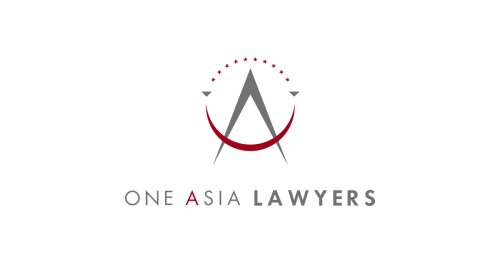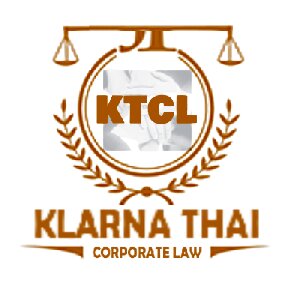Best Retirement Lawyers in Watthana
Share your needs with us, get contacted by law firms.
Free. Takes 2 min.
List of the best lawyers in Watthana, Thailand
About Retirement Law in Watthana, Thailand
Watthana, a vibrant district within Bangkok, is increasingly popular among retirees, both locals and expatriates. Retirement law in Watthana aligns with broader Thai regulations, but the district’s cosmopolitan environment makes it unique. Retirement law covers the legal requirements for those seeking to retire, including visa options, residency, property rights, healthcare access, and pension regulations. For expatriates, understanding the intersection between Thai national laws and local practices in Watthana is crucial to ensure a smooth, legal retirement experience.
Why You May Need a Lawyer
Navigating retirement issues in Watthana can present unexpected legal challenges. Some common situations where legal help is beneficial include:
- Applying for or renewing a Thai Retirement Visa
- Transferring foreign pensions into Thailand
- Buying or leasing property as a retiree
- Drafting or interpreting wills and estate plans
- Understanding healthcare rights and insurance coverage
- Dealing with tax obligations in Thailand and your home country
- Resolving disputes regarding inheritance or family law issues
- Ensuring compliance with Thai immigration laws
Legal experts specialized in Thai retirement and expatriate law can help you avoid costly mistakes, ensure compliance, and provide peace of mind during your retirement years in Watthana.
Local Laws Overview
Retirees in Watthana, especially those from overseas, are subject to several key regulations:
- Retirement Visa (Non-Immigrant O-A or O-X): Applicants must meet age (50 years or older), financial, and health requirements. Visas are typically issued for one year and can be extended.
- Financial Requirements: Proof of income or savings is mandatory. For example, a minimum monthly income of 65,000 THB or a deposit of 800,000 THB in a Thai bank account is commonly required for visa eligibility.
- Healthcare: Proof of health insurance covering at least 400,000 THB for inpatient and 40,000 THB for outpatient treatment is required for foreign retirees.
- Property Ownership: Foreigners cannot own land but may purchase condominiums (with restrictions) or lease land. Proper documentation and due diligence are important.
- Pension and Taxation: Some pensions may be taxed in Thailand depending on tax treaties with your home country. Double taxation agreements may apply.
- Wills and Succession: Foreigners are encouraged to draft a Thai will for assets in the country, avoiding legal disputes or delays in inheritance.
- Immigration Compliance: Annual visa renewals, 90-day reporting to local immigration, and adherence to Thai regulations are mandatory.
These regulations are subject to change, so seeking current legal advice is vital.
Frequently Asked Questions
What are the basic requirements for a Thai Retirement Visa in Watthana?
You must be at least 50 years old, have no criminal record, meet financial requirements (income or savings), and prove you have adequate health insurance coverage.
Can foreigners buy property in Watthana for retirement?
Foreigners cannot own land in Thailand, but you can legally own a condominium (up to 49 percent of the building’s total area) or lease property for up to 30 years.
How do I prove my income or savings for a Retirement Visa?
You need to show monthly bank statements or official pension documents demonstrating either the required monthly income or savings balance in a Thai bank account.
Is health insurance mandatory for retirees in Thailand?
Yes, for most retirement visas, you must have health insurance with coverage that meets or exceeds Thai immigration requirements.
Can I bring my spouse with me under my Retirement Visa?
Yes, your spouse can apply as a dependent. They will need to provide marriage documentation and must meet certain immigration requirements.
Are foreign pensions taxed in Thailand?
Foreign pensions can be subject to Thai tax unless exempt under a double taxation agreement with your home country. A legal expert can confirm your individual tax liabilities.
Do I need a Thai will for my assets?
While not required, it is highly recommended to draft a Thai will to cover your local assets and ensure your wishes are honored according to Thai law.
What happens if I overstay my visa in Watthana?
Overstaying your visa is a serious offense and can lead to fines, deportation, or blacklisting. Always ensure compliance with immigration laws and renew your visa on time.
How often must I report to immigration as a retiree?
Foreign retirees must submit a 90-day address report to Thai immigration to confirm their place of residence.
Where can I get legal assistance in Watthana?
You can consult with local law firms specializing in immigration and retirement law or seek advice from the local embassy, legal aid centers, or bar associations.
Additional Resources
If you need more guidance or support relating to retirement law in Watthana, the following resources may be helpful:
- Thai Immigration Bureau - Information on visa types and requirements
- Ministry of Public Health Thailand - Health insurance and medical service details
- Bangkok Legal Aid Centers - Free or low-cost legal advice
- Embassies and Consulates in Bangkok - Assistance for foreign nationals
- Watthana District Office - Local administrative support and information
- Thai Bar Association - List of qualified legal professionals
Next Steps
Determining the right path for your retirement in Watthana begins with understanding your legal obligations and opportunities. Assess your individual situation, gather necessary documents for visas or property transactions, and consult a certified lawyer specializing in Thai retirement law.
Prepare a list of questions and concerns, schedule an initial consultation, and review any agreements or contracts carefully before signing. Staying informed and working with trustworthy professionals will help you enjoy a safe, stress-free retirement in Watthana.
Lawzana helps you find the best lawyers and law firms in Watthana through a curated and pre-screened list of qualified legal professionals. Our platform offers rankings and detailed profiles of attorneys and law firms, allowing you to compare based on practice areas, including Retirement, experience, and client feedback.
Each profile includes a description of the firm's areas of practice, client reviews, team members and partners, year of establishment, spoken languages, office locations, contact information, social media presence, and any published articles or resources. Most firms on our platform speak English and are experienced in both local and international legal matters.
Get a quote from top-rated law firms in Watthana, Thailand — quickly, securely, and without unnecessary hassle.
Disclaimer:
The information provided on this page is for general informational purposes only and does not constitute legal advice. While we strive to ensure the accuracy and relevance of the content, legal information may change over time, and interpretations of the law can vary. You should always consult with a qualified legal professional for advice specific to your situation.
We disclaim all liability for actions taken or not taken based on the content of this page. If you believe any information is incorrect or outdated, please contact us, and we will review and update it where appropriate.












